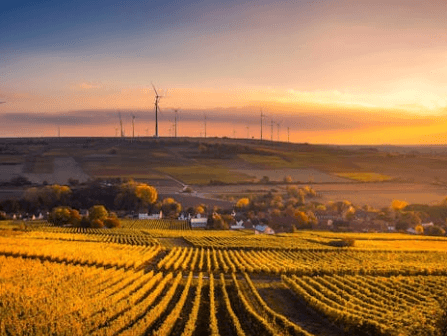Investing in land has become an increasingly smart financial move, with farmland alone offering an average annual return of 11.5%. If you’re wondering what the best land to invest in is, understanding market trends and land types is crucial. Veterans in the field, Steve Daria and Joleigh, have built stellar reputations as real estate investors and cash land buyers, helping clients identify high-value opportunities. Options like farmland, which saw a 155% increase in sales from 2023 to 2024, and residential land in fast-growing areas provide excellent potential for long-term profit. Factors such as location, zoning regulations, and land features all play a role in determining the best land to invest in for your goals. By working with experienced investors like Steve and Joleigh, you can gain tailored advice and avoid common pitfalls. Don’t leave your financial future to chance! Book a free discussion today to explore your options and find the perfect land investment strategy.
Key Points
- Farmland Offers Steady Returns: Farmland is one of the most reliable types of land to invest in, with an average annual return of 11.5%. It provides opportunities for income through leasing to farmers or agricultural production.
- Location Drives Value: The best land to invest in is often located in areas with growth potential or high demand, such as those near urban developments or infrastructure projects. A good location can significantly increase the land’s appreciation over time.
- Residential Land Provides Consistent Demand: With population growth driving housing needs, residential land investments can yield high returns. Areas with strong development plans or growing communities often make prime choices for residential land investment.
- Zoning Regulations Matter: Before investing, it’s crucial to understand the zoning laws governing the land. Whether it’s for residential, commercial, or agricultural use, land with flexible zoning options is often a smarter investment.
- Market Trends Are Key: Staying informed about market trends, such as rising farmland sales or urban expansion, enables investors to make more informed decisions. Understanding current and future demand ensures you select land with the best profit potential.
Why is land a smart investment choice?
Land is a smart investment choice because it is a finite resource that tends to increase in value over time.
Unlike stocks or other volatile assets, land provides stability and can offer consistent long-term returns.
For example, farmland, often considered the best land to invest in, has historically shown steady appreciation and additional income potential from leases or agricultural production.
Additionally, land investments require minimal maintenance compared to buildings or properties with tenants.

With increasing population and urban development, land in prime areas often becomes more valuable, making it a sound financial decision.
It also allows flexibility, as you can hold onto it, develop it, or resell it for profit, depending on market conditions.
Since land is a tangible asset that can be seen and used, it provides additional security for investors.
Purchasing land, when approached with thorough research and strategic planning, can be a dependable path to building long-term wealth.
Get Started: Get Your Cash Offer Below…
We are direct land buyers. There are no commissions or fees and no obligation whatsoever. Start below by sharing where your property is and where we can send your offer…
What factors influence the value of investment land?
Several key factors influence the value of investment land, making it essential to consider them carefully before making a purchase.
Location is one of the most critical aspects, as land near urban centers or growing communities tends to appreciate faster.
Zoning regulations are crucial in shaping how land can be used, defining whether it is designated for residential, commercial, or agricultural purposes.
The land’s physical characteristics, such as soil quality, water availability, and topography, can significantly impact its usability and potential value.
Economic trends, such as population growth or local infrastructure projects, often drive demand and increase land prices.
Market conditions, including supply and demand, also affect the land’s value, especially in high-growth regions.
Additionally, the potential for development or income, such as leasing farmland or building homes, can enhance its profitability.
By researching these factors, you can find the best land to invest in and maximize your returns.
What are the different types of land suitable for investment?
- Farmland: Farmland is considered one of the best investments in the land because it offers consistent returns through leasing or crop production. With the rising demand for food and the increasing adoption of sustainable farming practices, farmland values have steadily appreciated over time.
- Residential Land: Residential land is ideal for building homes or housing complexes in high-demand areas. It often provides steady returns, especially in regions experiencing population growth or urban development, making it an ideal investment for housing opportunities.
- Commercial Land: This type of land is perfect for constructing shopping centers, warehouses, or office spaces. It usually offers significant income potential but requires thorough research into market demand and location factors.
- Recreational Land: Recreational land can be utilized for hunting, camping, or other outdoor activities, providing both personal and financial benefits. Investors can lease the land for recreational purposes or develop it into profitable ventures, such as resorts or parks.
- Undeveloped Land: Undeveloped land provides flexibility for future growth, whether it’s residential, commercial, or agricultural. With low initial costs, it’s a great option for those looking to hold and profit as market conditions improve.

How do market trends impact the best land investment options?
Market trends have a significant impact on determining the best land to invest in, shaping both demand and profitability for investors.
For example, a population surge in a specific area often leads to increased demand for residential and commercial development, driving land values higher.
Similarly, infrastructure projects such as new highways, schools, or transit systems can significantly enhance the appeal and value of nearby land.
Trends in agriculture, such as increased demand for organic produce or renewable energy crops, can raise the value of farmland in certain regions.
Additionally, environmental movements promoting sustainable practices create unique opportunities for eco-friendly developments or renewable energy utilities.
Economic changes, such as lower interest rates or government tax incentives, often encourage land investments in specific sectors or regions.
Staying informed about local and national trends helps investors target areas with high growth potential and avoid regions that may decline in value.
Market adaptability ensures that your investment grows steadily over time, providing a steady return.
By analyzing these trends and acting promptly, you can make sound choices and identify the best land to invest in, ensuring strong returns and long-term success in your investment strategy.
How do I assess the potential ROI of a land investment?
- Research the Land’s Location: Location is one of the most crucial factors in determining potential return on investment (ROI). Land near urban centers, growing communities, or infrastructure projects are often considered the best land to invest in because it has a higher likelihood of increasing in value.
- Assess Development Potential: Consider how the land can be used, such as for residential, commercial, or agricultural purposes. Flexible zoning and high demand for these uses often make it the best land to invest in for consistent returns.
- Analyze Current Market Trends: Monitor local real estate trends, population growth, and economic conditions in the area. Understanding these trends can help you spot the best land to invest in with the strongest growth potential.
- Examine Historical and Projected Value: Look at both past value changes and predictions for future growth in the land’s worth. This will help you determine whether the investment is likely to yield a return over time.
- Evaluate Income Opportunities: Consider how the land could generate income, such as through leasing, farming, or development. Calculating future earnings can provide a clearer picture of the investment’s profitability.
What legal checks are necessary before finalizing a land investment?
Before finalizing a land investment, taking the proper legal steps is crucial to avoiding risks.
Start by verifying ownership to make sure the seller has the legal right to sell the land.
Look into potential disputes, such as liens or claims that could impact your investment.
Check zoning laws to confirm the land can be used for your specific plans, whether residential, commercial, or agricultural.
Ensure there is proper access to essential utilities, roads, and other services, as these can significantly impact the land’s value.
Conducting a title search is essential to ensure the property has a clear history, free from encumbrances or any fraudulent activity.
You should also review any environmental restrictions or regulations tied to the land, as they may limit what you can do with it.
Enlisting a skilled real estate attorney to navigate these checks is a wise step to safeguard your investment.
These steps will help you find the best land to invest in while minimizing legal issues.
Reach out to an expert today to ensure your investment is safe and profitable.
**NOTICE: Please note that the content presented in this post is intended solely for informational and educational purposes. It should not be construed as legal or financial advice or relied upon as a replacement for consultation with a qualified attorney or CPA. For specific guidance on legal or financial matters, readers are encouraged to seek professional assistance from an attorney, CPA, or other appropriate professional regarding the subject matter.
